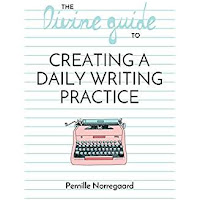Writing Rehearsal
by Paula Gail Benson
How
do you get to Carnegie Hall? Practice, practice, practice!
do you get happily published? Submit carefully crafted writing.
how do you ensure that your submissions are carefully crafted? Write
extensively.
you have to write every day? Some authors manage without, but I remember what
happened when I tried to improve my piano playing and left off practicing until
the day before the lesson. The result was passable, but not as polished as it
could have been if I had built on a daily habit.
music and writing may be inspiring to their listeners, they don’t emerge from
the muse by someone simply placing their fingers on a keyboard. Music and
writing have to be worked out in advance before you can sell tickets to the
audience.
is another creative activity that requires prep time. The first reading of a
line may “feel” perfect, but once you’ve rehearsed it, you realize more subtle
nuances, ways to play off fellow actors, or timed reactions that are funnier or
more poignant than the original interpretation.
and writers are solo performers. Only by repeated practice do they learn the
methods that will best charm and involve an audience. One of the greatest joys
of a performer can be the private discovery of how a musical or written piece
should be presented.
joy is compounded when they hear the audience’s reaction. The true moment when
the muse touches you is when you realize the perfect order and symmetry for
your work. An actor or pianist may receive a more instant gratification in
hearing applause, but what writer doesn’t relish listening to a reader tell him how his words and
stories have changed a life?
is necessary for performances because to act or play piano is an extension of
self. The way we turn writing into that extension is to: (1) sit down to write
with purpose, and (2) embrace the discoveries made.
developing a writing habit, you can let the daily discoveries soak in until
they become a part of your writer self. You learn to recognize those “tricks”
that attract your audience’s attention. Then, you refine them in order to make
them appear natural, so they become craft and your audience doesn’t perceive them
at all, but is completely involved in the story and hates to see it end. This is
the objective of every artist: to tell the story well and leave the listeners
satisfied.
Walter
Moseley said that when writing becomes a daily practice, the writer completes
projects and his subconscious begins to assist him even when he’s not writing
because the constancy of the task has become so strong. (Why does his concept
make me think I hear, “May the force be with you,” echoing in my head?)
Rodriguez has written some inspiring recent messages about becoming motivated to write
and making the decision to be a writer. Both feature excerpts from her recent
book, Plotting the Character Driven Novel,
which is terrific.
If you’re still contemplating New Year’s resolutions, here are a few books
that have recommendations to help you develop a daily writing schedule:

 The
The
Divine Guide to Creating a Daily Writing Practice by Pernille
Norregaard. This inspirational text includes many quotations from established
authors (like Walter Moseley’s theory above) and emphasizes how to effectively build a habit.
Writing Every Day
by Chris Fox. By illustrating how he changed his entire life through developing
consistent practices, Fox shows the path to more effective writing and offers
exercises to achieve that goal.
The Eight-Minute Writing Habit: Create a
Consistent Writing Habit That Works With Your Busy Lifestyle by Monica Leonelle.
This guide offers a modified Pomodoro Method of timed writing. By limiting the
writing period to eight minutes, Leonelle contends it creates a habit that is
easy to incorporate into any lifestyle and capable of ensuring at least 250 per
day, which could lead to 90,000 words in a year.









Great post, Paula! I've found that even checking in briefly on a project each day helps to keep the subconcious working, even if a full session of "practice" (writing) isn't in the cards that day. But yes, consistency is key. And thanks for the book recommendations!
Art, yours is an excellent idea. I'm going to start planning some "visits" over tea with my characters as well as practice sessions!
On point – and my personal resolution for 2017
Mine, too, Debra.
Great post, Paula! Like Art, I find it helps if I at least touch my project in some way every day. Some days that's writing, some researching, some revising. For me, it helps keep my head in the game. 🙂
Keeping your head in the game. That's the key. Thanks, ML!
Terrific post, Paula! I think often some writers tend to forget that "writers write." Like Art, I try to at least touch base with the current project before bed, even if it's been a day of events and travel that hasn't allowed writing. Reading over your work and/or making new notes on it can help keep your mind inside the world of your book–vital for keeping a consistent tone. (And thanks for the kind words about my book.)
I love the way you put it, Linda–"keep your mind inside the world of your book." And, your book is an inspiration! Many thanks!
Very inspirational! Thanks for this!